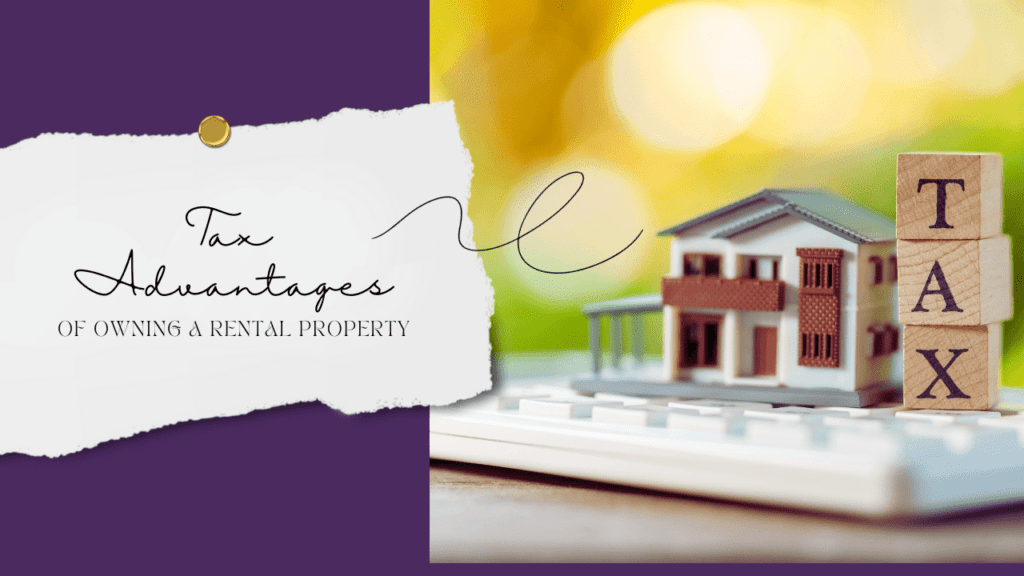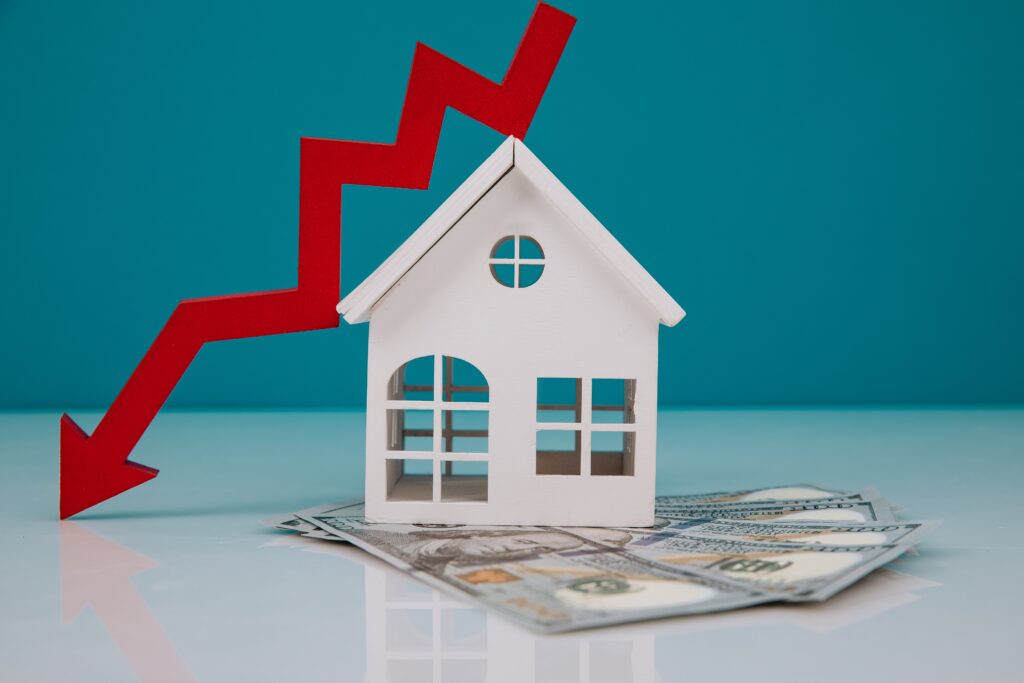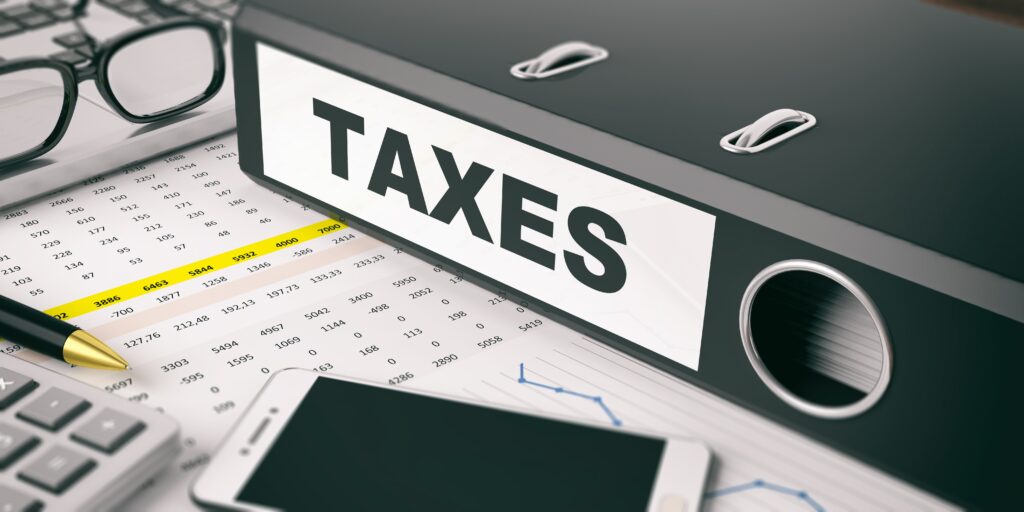
Raise your hand if you love thinking about taxes.
Ha. Of course you don’t. This is perhaps the least favorite thing for most of us to spend our time thinking about, doing, or agonizing over. No one likes paying taxes. No one.
But, there’s some good news when you’re a real estate investor. Plenty of tax benefits are available and working in your favor. Yes, you do have to declare the rents you collect as income. Yes, you do have to pay capital gains when you sell a property and make some real money.
You can offset a lot of that exposure, however, with the tax breaks you get as a rental property owner. Don’t cringe too hard at the amount the government expects you to pay; they’re going to give you some great incentives to support your commitment to providing housing in your community and to contributing to the overall economic engine in this country.
Many of the expenses associated with your rental property are deductible from your income. This provides a bit of breathing room when you’re weighing your income against your expenses for tax purposes.
We’re taking a close look at what you actually get to deduct. We’re also discussing tax benefits that stretch well beyond tax season – such as the 1031 exchange. And, we’re reminding you about the documentation and the paperwork that’s so critical…especially if you find yourself being audited or questioned. Let’s not get in the crosshairs of the Internal Revenue Service.
Depreciation is Your Secret Weapon
When It Comes to Rental Property Taxes

The IRS has some specifics that you’ll need to know about depreciation and how it applies to your rental property and your taxes.
From the IRS.gov website:
|
Depreciation
Depreciation is an annual income tax deduction that allows you to recover the cost or other basis of certain property over the time you use the property. It is an allowance for the wear and tear, deterioration, or obsolescence of the property. |
This is one of the most favorable tax tools that real estate investors and rental property owners can access. Depreciation will give you a generous discount on your taxes, and there’s not much you have to do in order to earn it. The depreciation benefit allows you to write off part of the loss of value that any property will experience as it ages.
The Magic Number is 27.5
Every property will undergo wear and tear and general deterioration, no matter how great its condition.
The IRS has established 27.5 years as the amount of time that residential property depreciations under its General Depreciation System.
Let’s give the IRS credit where credit is due: This is fairly generous, and it can help you save some major money at tax time. That savings will show up when you take advantage of the government’s invitation to accelerate the depreciation loss with your rental property. Ultimately, you will lower your taxable income for the year at tax time.
Reporting Lessons
Rental property depreciation is generally reported on Schedule E of a standard 1040 tax form, although there are situations in which you would use other forms. For example, Form 4562 may be used if you claim depreciation on a property in the year that you put it into service as a rental property.
Pro Tip: Always, always, always talk to your tax professional
Eligibility
To be eligible to claim depreciation as a deduction on your taxes, these conditions must be met:
| 1.
You must own the rental property for which you are claiming depreciation. There are limited exceptions to this, and you’ll need to talk with your tax accountant if you believe those exceptions may apply to you. |
2.
The property must produce income for you, meaning you must collect rent on that property. |
| 3.
You must be able to determine the useful life of your property. This will typically depend on the type of property we’re talking about. Everything has a different life cycle, or rate, at which it wears down. For real estate, this is somewhat standardized and the 27.5 years applies, unless your property is subject to the Alternative Depreciation System, in which case it’s 30 or 40 years (this is rare, and again – you’ll need some solid advice from a tax expert in order to claim it). |
4.
The useful life of the property must be greater than one year. Nothing that wears out in less than a year can be depreciated on your taxes. |
If you begin renting out a home in one year and sell it within that same year, the depreciation deduction would not apply to you.
Fair Warning: Depreciation is often misunderstood, and it’s easy to miscalculate what you can claim. Make sure you are entitled to this tax break, and talk to a professional to determine what your benefit is. You don’t want to invite an audit or a correction from the IRS.
Rental Property Expenses as Tax Benefits
 Are you treating your rental property like a business?
Are you treating your rental property like a business?
You should be. This is not your own home; it’s a property that’s earning money for you. When you have a growing portfolio, you’re working hard to grow your business.
Another good reason to see your rental property as a business? The IRS sees it that way.
That means your business expenses are tax-deductible.
Tax-Deductible Business Expenses
| Insurance costs for your investment property or properties. | Professional property management fees and leasing fees. | Commissions paid to real estate agents or other leasing agents to rent your property. |
| Other professional fees, such as accounting or legal costs. | Maintenance and repair costs to keep your rental property habitable. | Travel costs and home office costs. |
These expenses must be directly related to your rental property business. The IRS allows you to deduct only the ordinary and necessary expenses for managing and maintaining your rental property and preserving its value and condition.
To Deduct or Not to Deduct?
That is the Question
- Advertising costs: Yes! When your property is vacant, you may need to pay to advertise the home. That’s a tax-deductible expense.
- Electric bills during vacancy: Yes! You can deduct what you spend on utilities while trying to find tenants.
- Adding an extra half-bathroom: No! While maintenance and repairs can be deducted, improvements are different.
Maintenance costs can get tricky. You have to be careful about what you consider maintenance and what is considered an improvement. The costs of materials and supplies when you’re maintaining your home are deductible. Anything that needs to be done to keep your property in good condition is acceptable.
Improvements are not treated the same. According to the IRS, the rental property is improved only if the amounts paid are for a betterment or restoration, or adaptation to a new or different use. The IRS.gov website has a valuable section called Tangible Property Regulations – Frequently Asked Questions. If you’re unsure about whether you’re deducting a maintenance cost or a home improvement cost, you might find your answers there.
- Mortgage interest: Yes! You can deduct any interest you’re paying on the mortgage for your rental property.
- Property taxes: Yes! Those local taxes are eligible to be written off on your federal return.
Can You Enjoy Tax Benefits Even Outside of April 15?

Why not defer your capital gains taxes when you sell a property?
There’s another tax benefit that likely does not get utilized as often as it should.
Welcome to the 1031 Exchange
The IRS allows for a 1031 exchange, which is a program that encourages investors to defer any capital gains taxes they might be required to pay by reinvesting the earnings from a sale into another purchase.
This is a program that can be used even across state lines. For example, if you want to sell an expensive property in Manhattan and use the money to buy a few less-expensive properties in Cherry Hill, you can do that.
There’s a lot you need to know to conduct a 1031 exchange effectively; it’s a great program, but not without its complications. While a 1031 exchange allows you to keep more of the money you’ve earned and establish a more effective long-term investment strategy, you have to follow its specific rules and timelines.
Let’s take a look at those, so you know what you might be walking into.
1. Benefits of a 1031 Exchange for New Jersey Rental Homes
Home values are pretty high right now. So, if you decide to sell one of the investment properties you’ve been renting out, you’re likely to earn a healthy profit on the property you sell. To avoid tax liability, use that money to buy another rental home or several rental properties that are similar to the one you’re selling.
Here’s some good news: Similar does not mean exactly the same. You can sell one single-family home and buy two condos. Or, you can sell one apartment building and buy two single-family homes. There are plenty of options.
You will certainly benefit from the 1031 exchange if your rental property is older and maintenance costs have been steadily increasing. Selling a home with ongoing repairs will allow you to reinvest the proceeds into a newer property that will provide better cash flow.
2. How to Manage the 1031 Exchange Process
If you’ve decided you’re in a good position to leverage the 1031 exchange, prepare yourself to take these specific steps.
| One | Make sure your property qualifies for this benefit. This tax program is meant for investment homes. You cannot sell the home you’ve been living in and reinvest the money to buy a vacation home. |
| Two | You’ll need to exchange with a like property or properties. The new property you choose must have a value that is the same or higher than the original property. If you walk away from the exchange with any profit, they will be taxable. |
| Three | Find one property, two properties, or three, or more, to exchange with your current property. |
| Four | Use an intermediary and don’t take any of the cash from the sale of your property. The intermediary will hold your funds until they can be reinvested in your new purchase. Ask your property managers for a referral. |
3. Understanding the Strict Timelines for the 1031 Exchange
Taxes come with timelines and deadlines: no news there.
With the 1031 exchange, there’s a schedule that you’ll need to keep. Here’s what to know:
- You’ll need to identify a replacement property within 45 days of selling your original property (this doesn’t mean you have to buy it – you simply must identify it).
- You have 180 days to close on the new sale.
The entire exchange must take place within the 180 days (meaning you don’t have 45 days plus 180 days – the clock does not reset).
Remember: This isn’t a completely tax-free option. You are technically deferring the payment of your taxes. However, there are no limits to how many times you can execute a 1031 exchange. If you want to leave your investment property to your children or beneficiaries after you die, they’ll receive a step-up, which will let them avoid all the taxes you deferred.
What about the Paperwork?
Tax Documents and Reporting

As tax time approaches, you’ll likely begin to gather all of the necessary documents and forms to file accurately and on time.
Your rental property will require its own paperwork, outside of your other filings and records. Whether you’re working with a CPA or a tax accountant or managing your own taxes, you’ll want to make sure you have the necessary documents on file.
We have a lot of expertise in our office, but taxes are best left to the real experts. We want to make sure you’re getting the appropriate support and the correct resources. So, please talk to an accounting expert or a tax attorney. We are your local New Jersey property management experts, and while we cannot file for you, we can help you make sure you have tax records that are clear, easy to understand, and free of errors.
Let’s take a look at what you should keep on file as you’re preparing to file taxes.
Income Statements
We will provide our rental property owners with a Form 1099 MISC, which reflects all of the rent they were paid over the year. Whether this income is earned from one property or an entire portfolio, it gives you the numbers you need to accurately report your investment income. Make sure you have a similar statement if you’ve been managing on your own. You should have a record of what you earned and what you spent. Print this out and keep it in your files so you can easily plug in the numbers you’ll need while filing taxes.
The IRS defines rental income as “any payment you receive for the use or occupation of property.” The money you collect in rent will generally be taxed as ordinary income. What you pay will depend on your marginal tax bracket.
Obviously, your monthly rent is taxable. The IRS also expects you to pay taxes on other types of income associated with your rental properties, which may include:
- Advanced rent payments
- Portions of the security deposit that were kept
- Any expenses paid by tenants that aren’t legally required for them to pay
- Services provided by your tenants
Many successful rental properties may show lower income than what’s collected and even losses. This is due to the deductions landlords and owners can claim.
Make sure you know your state tax requirements, too, as far as reporting income is concerned.
Receipts and Invoices Supporting Deductions
Those deductions that we talked about? You can expect the IRS to take your word for it, but you want to make sure you can back up your claims if you’re asked. Keep all of your supporting documents that allow you to write off the repairs and maintenance, the mortgage interest, and the professional services. Be able to demonstrate your travel costs and your home office write-offs.
Tax time is not always fun, and when you are working with rental properties, you’ll have to understand how your income is reported and what you can do to take advantage of tax benefits. Don’t leave any of this money on the table; make sure you’re taking advantage of all your benefits.
Would you like to talk about what you’re doing right and what you might be missing with your taxes? We can give you a quick review, and even refer you to some accounting professionals if you don’t already have someone working with you on your taxes. A good property management company provides comprehensive support, and that’s why we’re here.
Let’s get you in good shape for tax time. Please contact us at Realty Solutions if you want to talk about your investments, your taxes, or anything pertaining to your rental properties and your goals. We lease, manage, and maintain homes in Audubon, Collingswood, Cherry Hill, Haddon Heights, Blackwood, and the surrounding communities.
